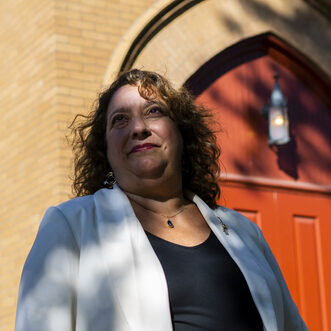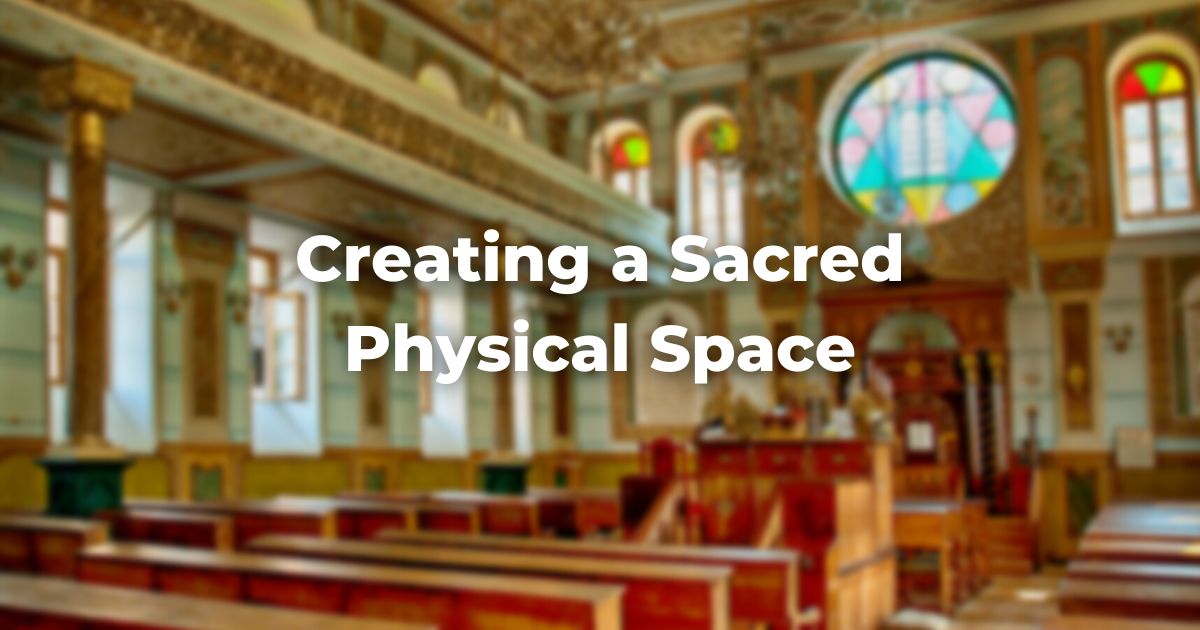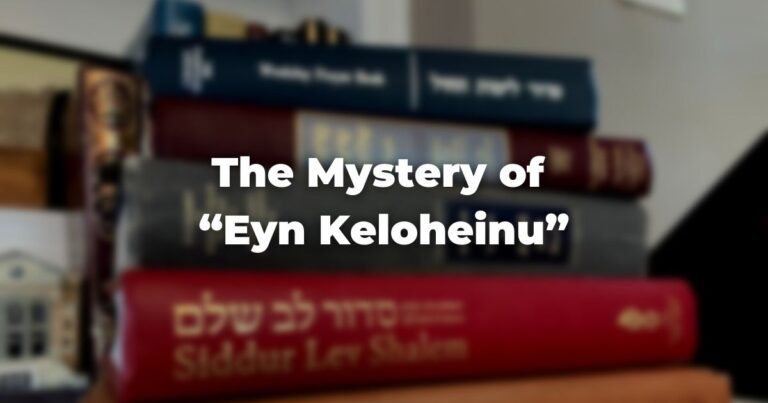It is possible to pray at any time and in any dignified place.
Both theology and logic tell us that it makes no sense to imagine that God only dwells within grand sanctuaries filled with expensive furnishings.
Nonetheless, the halakhah demands that we invoke God’s name in prayer only in settings that are worthy of the sacred enterprise of prayer.
There should be a degree of decorum as well in any space where liturgical language is invoked. Out of respect for both God and ourselves as servants and worshipers of God.
Therefore, one should not pray in the vicinity of garbage, nor should one’s place of prayer be in close proximity to a privy. According to the Shulchan Arukh, “One should not pray in a place that will destroy concentration” (Shulchan Arukh, Orach Chayim 98:2).
Maimonides even goes so far as to ordain that one should not even conduct business in a place generally used for prayer, lest profane transactions hinder worshipers’ ability truly to think of that locale as sacred space (Mishneh TorahRefers to the first five books of the Hebrew Bible, the Tanakh, also called the Five Books of Moses, Pentateuch or the Hebrew equivalent, Humash. This is also called the Written Torah. The term may also refer to teachings that expound on Jewish tradition. Read more, Prayer and the Priestly Blessing 11:6–7).
Although we have the right to pray anywhere and at any time, as religious individuals we also desire to create aesthetically pleasing spaces for prayer.
Therefore, inappropriate ostentation is often eschewed in favor of a simple dignity regarding architecture and adornments.
The physical structure of a synagogue is just one aspect of its service as sacred space.
A synagogue with a sanctuary brings with it the presence of a congregation, the presence of community, and as such the opportunity to recite communal prayers that one may not say when praying alone.
Furthermore, prayer is enhanced when praying with a congregation.
What makes a synagogue sacred is more than the elaborate design or the number of Torah scrolls in its Holy Ark.
A synagogue is sacred space when it is full of a congregation of loving and compassionate Jews who live their lives with devotion to the ideals of the Torah.
They create a space where communal prayer is devotional and spiritual, where one can experience God amidst the people.
Adapted with permission from The Observant Life.
Authors
-

Rabbi Dr. Karen G Reiss Medwed, is Teaching Professor emerita at Northeastern University. She serves as Interim Vice Provost, Academic Affairs and Initiatives for HUC-JIR. Dr. Reiss Medwed's scholarship includes digital education, higher education leadership, and faith-based education. Dr. Reiss Medwed was ordained by JTS in 1995, and earned her Ph.D. from New York University's Steinhardt School of Education in Curriculum, Teaching and Learning with a specialization in Jewish education in 2005.
View all posts -

The Observant Life: The Wisdom of Conservative Judaism for Contemporary Jews distills a century of thoughtful inquiry into the most profound of all Jewish questions: how to suffuse life with timeless values, how to remain loyal to the covenant that binds the Jewish people and the God of Israel, and how to embrace the law while retaining an abiding sense of fidelity to one’s own moral path in life.
Written in a multiplicity of voices inspired by a common vision, the authors of The Observant Life explain what it means in the ultimate sense to live a Jewish life, and to live it honestly, morally, and purposefully. The work is a comprehensive guide to life in the 21st Century. Chapters on Jewish rituals including prayer, holiday, life cycle events and Jewish ethics such as citizenship, slander, taxes, wills, the courts, the work place and so much more.
View all posts




